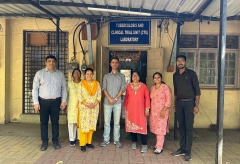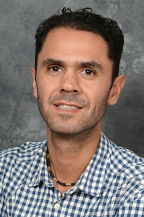A major new effort at Weill Cornell Medicine seeks to catalog the normal human virome, the immense ecosystem of viruses that lives in and on us. The work, part of a multi-institution collaboration called Viromes Across Space and Time (VAST), supported by the National Institute on Aging, part of the National Institutes of Health, will pioneer new techniques, illuminate a crucial aspect of human biology that was impossible to study before, and establish a baseline set of data that could help in preventing, diagnosing and treating disease.
Most viruses don’t make humans sick. Indeed, virologists have long suspected that the world is awash in viruses that cause no disease and that traditional lab tests can’t detect, but recent advances in DNA and RNA sequencing and bioinformatics have finally allowed them to probe this biological dark matter. Understandably, much of that work has focused on how changes in the virome can contribute to disease. The new project tackles an equally important question: what does a healthy virome look like?








